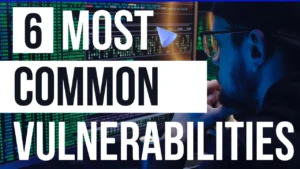Introduction
What happens if your VPN disconnects unexpectedly? Is your personal information at risk? And, if that’s the case, how can you protect yourself without a VPN? In this blog we will talk about this.
If you’re concerned about internet security, you’re probably using a VPN. These are wonderful for encrypting your internet data and keeping you safe while surfing, but what if your VPN disconnects unintentionally? Is deactivation a minor inconvenience, or does it put your data in danger?
Impact of VPN disconnection
In order to transport your data to faraway servers for encryption and IP masking, VPNs require a reliable internet connection.
As a result, if your virtual private network encounters connectivity challenges or your bandwidth is insufficient for your data to reach the server, you may get disconnected without even realising it.
The moment you become disconnected from your VPN while still using the internet, your IP address and all your online activity instantly become visible to your Internet Service Provider (ISP).
So, even if you’ve been masking your IP and activity for years with your VPN, this element of privacy is eliminated as soon as your VPN disconnects.
Furthermore, without your VPN, you become extremely vulnerable to fraudulent online activity because your data is now more easily accessible to fraudsters. If you’re using a VPN to visit insecure websites, this is a huge issue.
Legal websites employ HTTPS, or Hypertext Transfer Protocol Secure, which encrypts the connection between a website and its user, protecting the data’s integrity. If you just visit sites that employ HTTPS, deactivating your VPN won’t be as dangerous.
Is there anything you can do to keep your sensitive data from becoming more susceptible if your VPN could disconnect at any time?
When Your VPN Disconnects, Here’s How to Stay Safe
If your VPN disconnects, your first priority should be to reconnect to the VPN as soon as possible. This will re-establish your connection and protect your data.
If you are unable to reconnect to the VPN, you should take steps to protect your data. One way to do this is to use a Virtual Private Network kill switch.
A VPN kill switch is a feature that will block your internet connection if the VPN disconnects. This will prevent your data from being exposed.
This means that there is no chance for your real IP address to be revealed or for your data to be decipherable by your ISP after your VPN disconnects.
Another way to protect your data is to use a secure web browser. Secure web browsers encrypt your data and hide your IP address.
This means that even if your VPN disconnects, your data will still be protected. Finally, you should always use a secure VPN provider. A secure VPN provider will have robust security measures in place to protect your data.
They will also have a strict no-logs policy, which means that your data will not be tracked or monitored.
Conclusion
While browsing the internet after disconnecting from your VPN can put you at risk, taking the necessary precautions will ensure that none of your personal information is accessed by unwanted individuals.
You can surf the web without worrying about the ramifications of any abrupt VPN failures if you enable the kill switch feature on your VPN.



